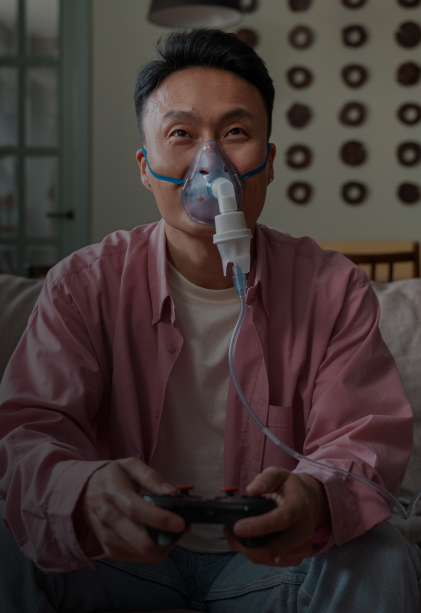• Excessive daytime sleepiness
• Morning headaches
• Shortness of breath
• Fatigue and weakness
• Poor sleep quality

Causes: Brain dysfunction, obesity, neuromuscular disorders, lung diseases.
Risk Factors: Obesity, age (more common in adults over 40), chronic respiratory conditions, sedative or opioid use, family history of respiratory conditions.
Tests: Sleep study (polysomnography), and airway examination.
Medications: Oxygen therapy, ventilators, medications to improve breathing (e.g., stimulants).
Lifestyle: Weight management, sleep apnea treatment (CPAP), regular exercise, avoiding sedatives.
- Maintain a healthy weight to reduce strain on breathing.
- Use prescribed oxygen therapy or CPAP for better sleep quality.
- Avoid sedatives and opioids that can worsen breathing issues.
Q: Can hypoventilation syndrome be cured?
A: No, it can’t be fully cured, but it can be managed effectively with treatments like oxygen therapy and lifestyle changes.
Q: Can exercise help with hypoventilation syndrome?
A: Yes, regular exercise can strengthen respiratory muscles and improve overall lung function.